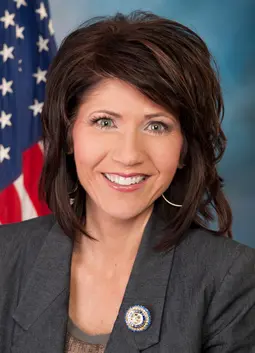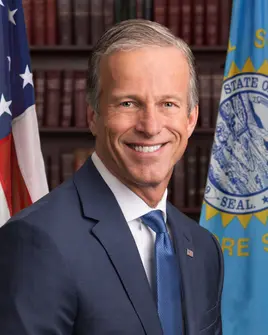In a historic rise to a prominent federal role, South Dakota Republican Governor Kristi Noem has been confirmed as the next Secretary of the Department of Homeland Security. The U.S. Senate endorsed her nomination on Saturday with a bipartisan vote of 59-34, enabling Noem to oversee one of the largest government agencies, which houses 260,000 employees and manages a budget surpassing $100 billion.
Noem, previously a congresswoman, brings her leadership experience as South Dakota’s first female governor to this pivotal national security position. Her ascendancy reinforces South Dakota’s political influence at a federal level, highlighting the state’s ongoing engagement with national governance.
With Noem’s confirmation, her lieutenant governor, Larry Rhoden, ascended to the governorship, becoming South Dakota’s 34th chief executive. Rhoden’s appointment is subject to a formal ceremonial swearing-in, marking a new chapter for the state’s administration.

Kristi Noem
The confirmation process witnessed significant discourse in the Senate, with South Dakota’s Republican senators, including Majority Leader John Thune and Senator Mike Rounds, supporting Noem’s nomination.

John Thune
However, the confirmation was not without opposition. Senator Dick Durbin, D-Illinois, raised concerns about the mass deportation policies Noem could administer under President Trump’s directive, particularly emphasizing the adverse effects on agriculture—a critical sector for South Dakota’s economy. Durbin argued, “In many instances, they will be removing the very workers that pick the crop.” Despite these concerns, Senator Chuck Grassley, R-Iowa, endorsed Noem, asserting the need for stricter immigration law enforcement.
Noem’s stance on border security gained her national recognition during her gubernatorial tenure, as she dispatched National Guard troops to the Texas-Mexico border. This move showcased her commitment to enforcing stringent immigration measures, a theme she promises to continue as the head of Homeland Security.
South Dakota’s economic backbone, agriculture, plays a crucial role in shaping the policy discussions surrounding Noem’s new appointment. The state’s farmers depend significantly on immigrant labor, making this a contentious issue among local stakeholders. As Noem steps into her new role, balancing national security with the agricultural interests of her home state will be vital.
Her tenure as governor was marked by her decision to avoid extensive COVID-19 shutdowns, aligning closely with President Trump’s policies and cementing her status as a key ally in his administration. This collaboration opened doors for her escalation to the national stage, further advancing South Dakota’s political presence.
The Department of Homeland Security, which Noem will now lead, is tasked with critical responsibilities including border protection, cyber security, disaster response, and safeguarding dignitaries. Her appointment arrives amidst ongoing challenges on the U.S.-Mexico border and evolving immigration policies under President Trump’s administration.
Noem’s personal narrative and political trajectory have been subjects of media attention, partly due to her controversial book “No Going Back.” The book, published in 2024, stirred debates and temporarily ended speculations about her as a potential vice-presidential candidate. Nonetheless, her resilience and commitment have propelled her to a prime position within the Trump administration.
South Dakota now stands at an interesting political juncture, with Rhoden assuming the governorship and the state continuing to navigate its contributions and responses to federal policies. The state’s political landscape remains dynamic and influential, with implications that extend to national security and agricultural policy discussions.
For further inquiries or to follow up on South Dakota’s latest political developments, please contact Editor Seth Tupper at [email protected].
